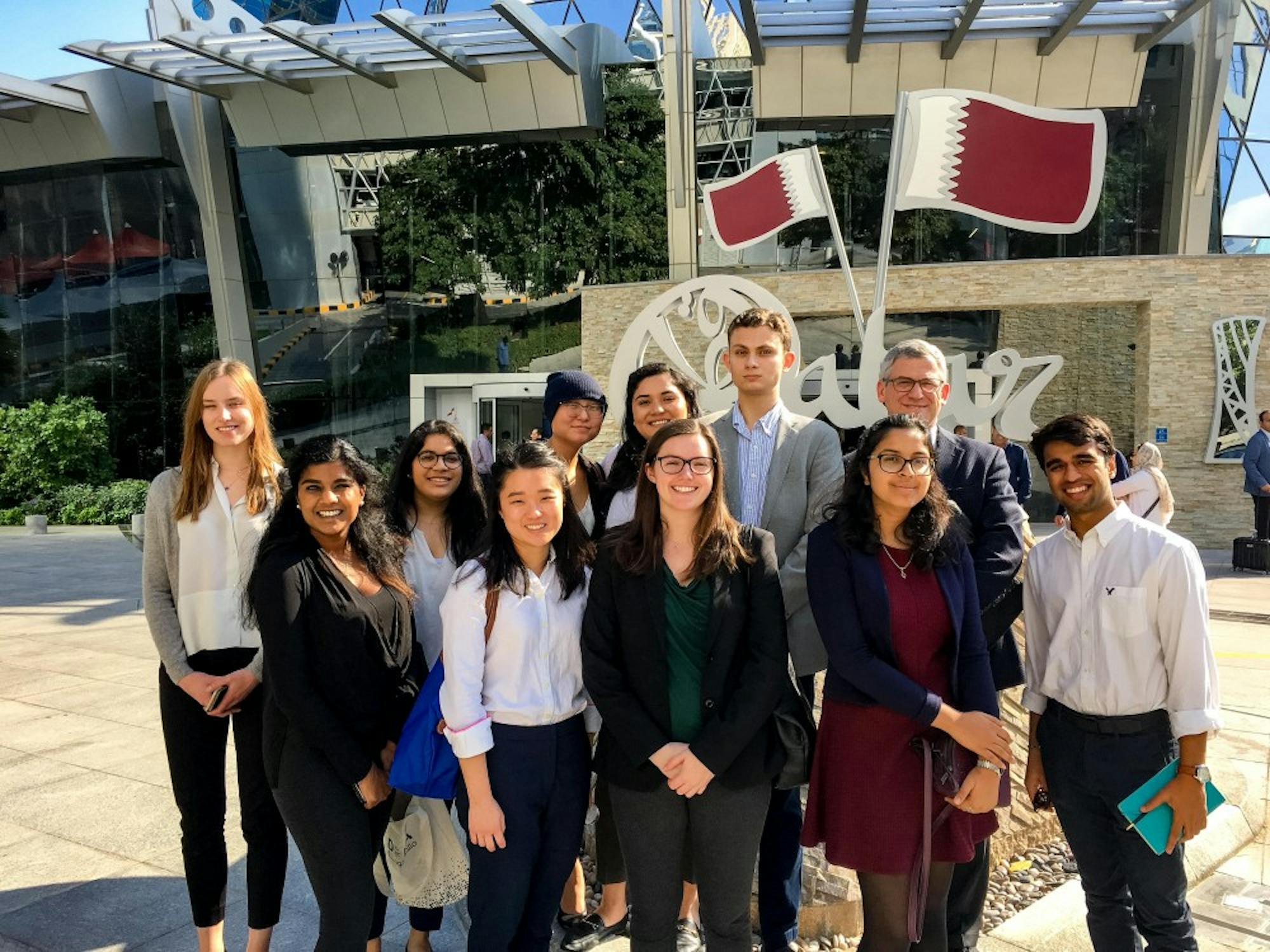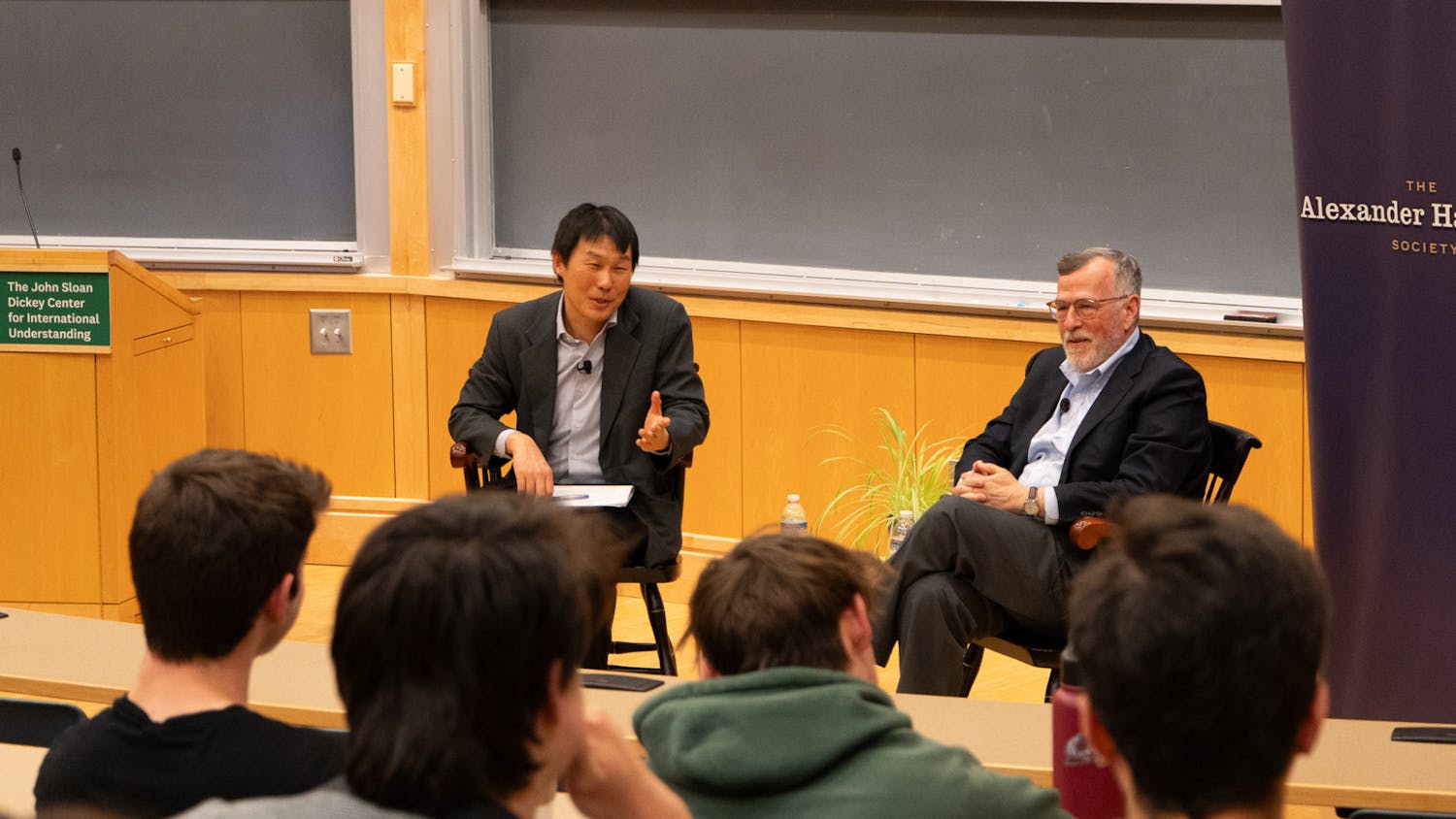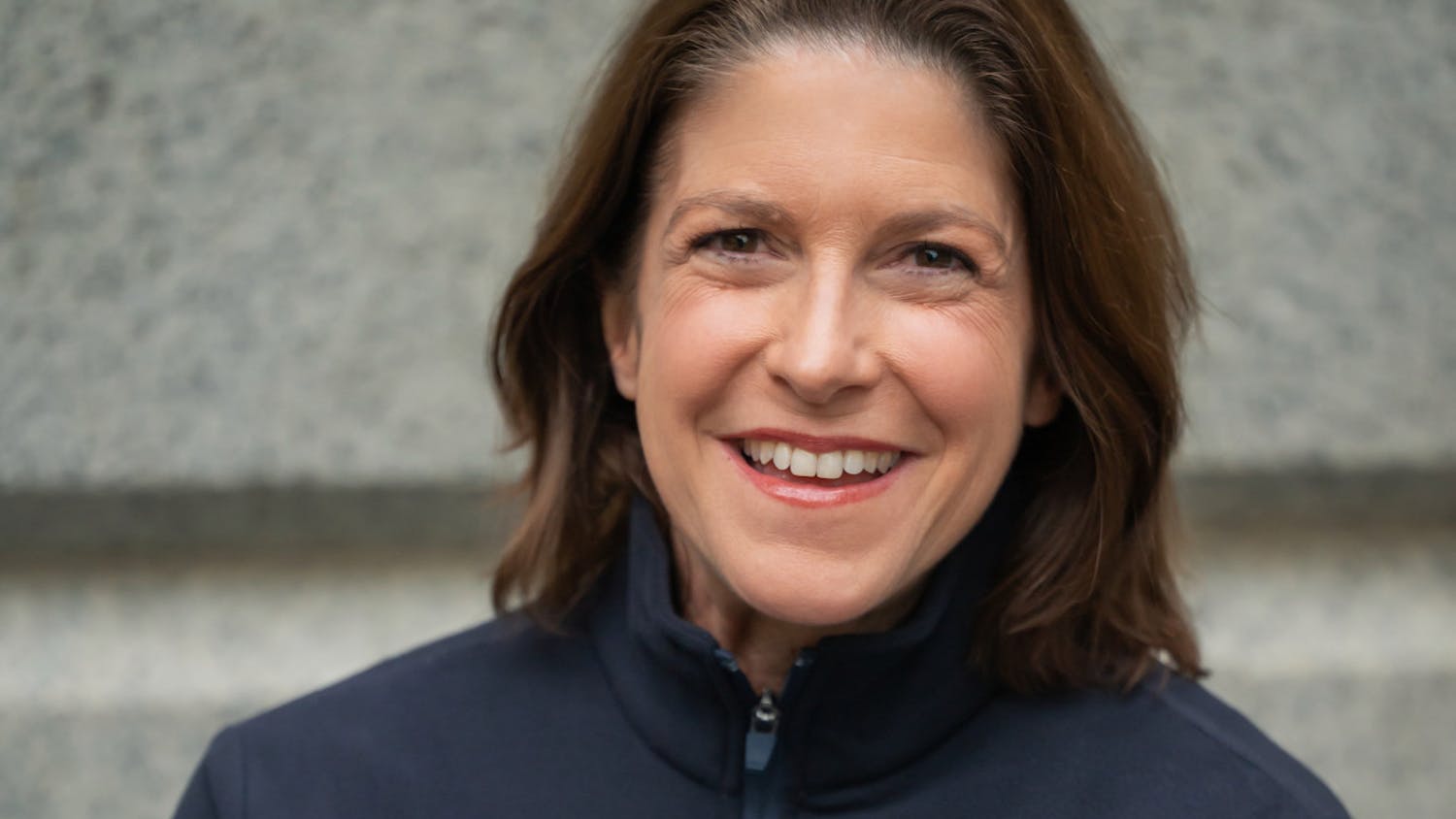This past December was an unforgettable one for 10 students in the College’s War and Peace Fellows program. During a trip to Qatar during winter break, the War and Peace fellows were able to explore geopolitics of the Middle East through high-speed sand duning, peer into the propaganda espoused by Al Jazeera through a first-hand tour of the news channel’s headquarters and further their understanding of U.S.-Qatari relations through conversations with statespeople such as former White House Press Secretary Sean Spicer.
The War and Peace Fellows program allows students from various academic backgrounds to discuss a broad range of international-relations issues throughout the year. Speakers who work on the issues firsthand are invited to have more intimate conversations and meetings with the fellows. The program is punctuated by an annual trip to Washington, D.C. in the spring to give students an inside look into public policy making. However, this year, Daniel Benjamin, director of the John Sloan Dickey Center for International Understanding, worked with Qatari officials to sponsor a cost-free trip for 10 chosen fellows.
“The main objective was really for the students to become knowledgeable about the complex politics in the region [and] the importance of the countries [in the Middle East] whose economic and political weight is really pretty remarkable,” Benjamin said.
The trip coincided with a tense political situation between Saudi Arabia and the United Arab Emirates on one side and Qatar on the other. The blockade between these two entities gave the students an exceptional academic experience, according to government professor Benjamin Valentino, who led the trip. Valentino added that the fellows arrived at a crucial moment in Middle Eastern politics.
“I do think that the trip allowed the students to see not just Qatari politics, but [also] Middle Eastern politics in a different light,” he said. “It’s one thing to read about the conflict between Qatar and its neighbors — the Saudis and the Emiratis primarily — but when you go and talk to Qataris … you can see the emotional reactions that Qataris had to being essentially outcast from the other Gulf states … That’s the kind of experience you can only get by visiting a place.”
For many fellows, the trip to Qatar illustrated principles and ideas taught inside the classroom in a high-stakes, real-world setting. Priya Sankar ’19 said she was able to apply her knowledge as a government and economics major to assess the oil state.
“I’m really interested in Israeli politics, so learning about geopolitics in the Middle East was something that I valued, especially because I don’t usually get to engage with Middle Eastern or energy politics,” Sankar said.
Unlike other fellows, Karla Rosas ’20 had already been to Qatar before as part of her military service. Rosas noted, however, that the “living situations” she experienced during her two trips to Qatar were incomparable.
“I went to Qatar briefly [before] … and I thought [this trip] was going to be similar to my experience in the military, but it was not,” Rosas said. “It was quite the opposite. At the time when I went [a few years ago], I stayed in transient tents ... which was not the best living situation. When we went to Qatar this time, we got the royal treatment. It was just incredible how hospitable and how well the Qatari government treated us.”
Rosas’ amazement at the group’s experience was echoed by Paulomi Rao ’19, who said she is interested in stepping outside of the typical Eurocentric policy lens. Rao and Rosas recalled being treated to cappuccinos while their passports were being processed, transported in caravans of BMWs and invited to coffee with international ambassadors.
“The activities we went on were absurd,” Rao said. “We went sand duning [and] we went to the Supreme Committee for Delivery and Legacy, which was basically just FIFA telling us how [amazing] they were.”
The academic pinnacle of the trip for the fellows was attending the Doha Forum. According to Valentino, the Doha Forum is a conference that brings together people working on issues relevant to the Middle East from all around the world.
“It was a great opportunity to see the world in a way that Dartmouth doesn’t really often allow you to,” Rao said. “Usually we see things through a very academic perspective, whether through articles, literature or debates. The trip itself was just hands-on, experiential learning.”
Benjamin, Rao, Rosas, Sankar and Valentino all expressed their gratitude for the opportunity to travel to Qatar. According to Valentino, the trip embodies Dartmouth’s commitment to undergraduate education.
“These are the kinds of activities that just don’t happen, even at ... other schools that we consider our peers or competitors,” he said. “The ability for undergraduates to have this kind of experience — as opposed to graduate students or even faculty — is, I think, almost unheard of at any other place.”
Rao is a former member of The Dartmouth staff.




